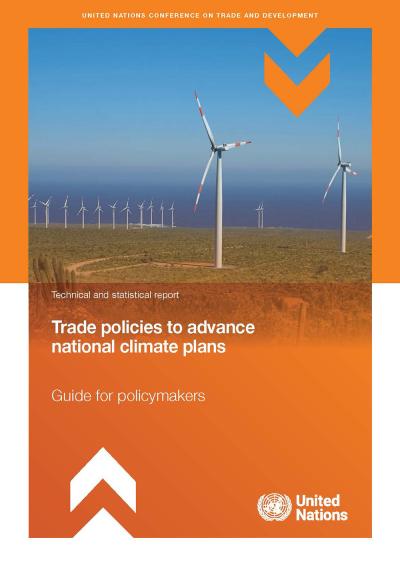
To meet the goals of the Paris Agreement, parties are required to prepare, communicate, and update their successive Nationally Determined Contributions (NDCs) every five years, aiming for the highest possible ambition. NDCs represent each country's commitment to reducing emissions, adapting to climate impacts, and promoting sustainable development.
The first global stock-take under the Paris Agreement, which concluded in December 2023 at the United Nations Climate Change Conference (COP28), noted significant, albeit insufficient, progress toward the goals of the Paris Agreement. It called for a comprehensive transformation across all sectors, which is essential to lowering emissions, strengthening resilience, and mobilizing resources in a just and sustainable manner to accelerate and enhance efforts to meet the agreed-upon goals.
As countries prepare their third round of NDCs before COP30 in 2025, they are encouraged to align global emissions with climate goals by establishing ambitious, economy-wide emissions reduction targets across all sectors and greenhouse gases. This should take into account each country's unique circumstances and the common but differentiated responsibilities and respective capabilities of each nation. Almost 70% of the NDCs from parties to the Paris Agreement indicate a need for financial international support to implement at least part of their commitments.
The decision on the New Collective Quantified Goal for climate finance was adopted at the United Nations Climate Conference (COP29) in November 2024 in Baku, Azerbaijan. This decision calls on all actors to collaborate in scaling up financing for climate action in developing countries, aiming for at least $1.3 trillion per year by 2035. It also established a specific goal of $300 billion per year for climate action in developing countries by 2035.
These efforts significantly advance both climate ambition and implementation, particularly benefiting developing countries. Progress can be further enhanced by integrating climate action within broader sustainable development frameworks, implementing mitigation policies that also consider adaptation or co-benefits aligned with the Sustainable Development Goals (SDGs). This approach diversifies economies, builds resilience, and drives more substantial emissions reductions. Additionally, expanding and developing new sustainable value chains can strengthen domestic resource mobilization.
Addressing the challenges of climate change requires a comprehensive and integrated approach that connects climate policy with broader economic and development strategies. Effective climate action needs to be closely linked to human capital development, industrial strategy, climate policy—including carbon pricing as part of the policy mix available to countries—and climate-aligned trade and investment policies. Moreover, integrating climate ambitions into national and subnational development plans, economic strategies, and sectoral policies is essential for promoting policy coherence and maximizing synergies between climate action, economic growth, and social development.
In this context, international trade plays a critical role in advancing the objectives of the Paris Agreement and the SDGs. It facilitates access to environmentally friendly goods and services, technology, and knowledge—particularly those essential for the implementation of NDCs and mitigation and adaptation plans—while supporting the development of climate-resilient and resource-efficient value chains.
This guide provides policymakers with a six-step process to better integrate trade-related measures into NDCs.
Step 1 involves designating focal points. Steps 2, 3, and 4 focus on identifying and selecting climate-strategic trade sectors to target with these measures, while steps 5 and 6 address the formulation and adoption of the measures.
In conclusion, the guide presents a step-by-step checklist to identify climate change-strategic trade sectors and relevant trade-related measures.
The guide complements UNCTAD's guide on leveraging foreign direct investment to advance national climate plans.
“Zero drafts” of both documents were introduced for consultation with stakeholders in November 2024 at the twenty-ninth session of the Conference of the Parties to the United Nations Framework Convention on Climate Change (UNFCCC), held in Baku, Azerbaijan.
The Paris Agreement is a legally binding international treaty on climate change, adopted by 196 parties at the UN Climate Change Conference (COP21) in Paris, France, on 12 December 2015. It entered into force on 4 November 2016.
Its overarching goal is to hold "the increase in the global average temperature to well below 2°C above pre-industrial levels" and to pursue efforts "to limit the temperature increase to 1.5°C above pre-industrial levels."


